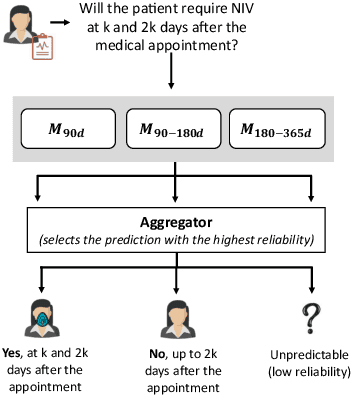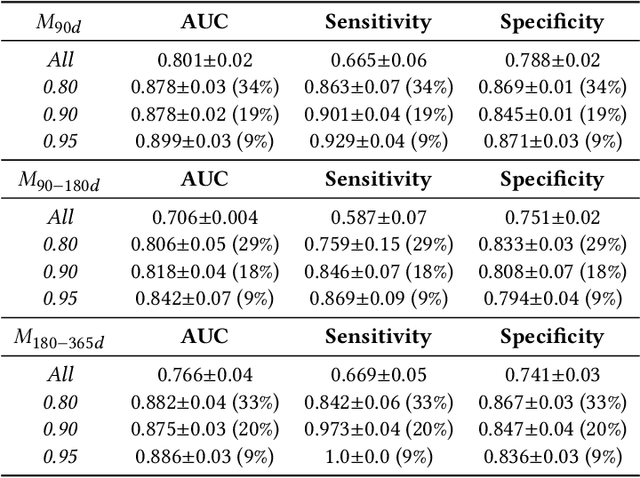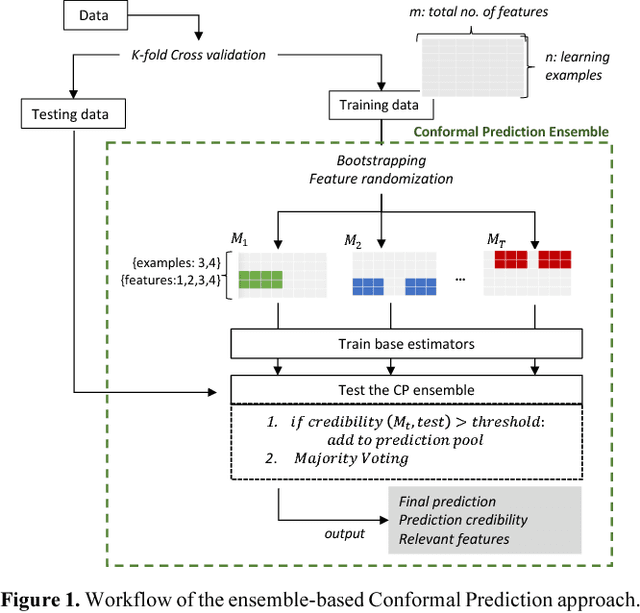Telma Pereira
Predicting assisted ventilation in Amyotrophic Lateral Sclerosis using a mixture of experts and conformal predictors
Jul 30, 2019



Abstract:Amyotrophic Lateral Sclerosis (ALS) is a neurodegenerative disease characterized by a rapid motor decline, leading to respiratory failure and subsequently to death. In this context, researchers have sought for models to automatically predict disease progression to assisted ventilation in ALS patients. However, the clinical translation of such models is limited by the lack of insight 1) on the risk of error for predictions at patient-level, and 2) on the most adequate time to administer the non-invasive ventilation. To address these issues, we combine Conformal Prediction (a machine learning framework that complements predictions with confidence measures) and a mixture experts into a prognostic model which not only predicts whether an ALS patient will suffer from respiratory insufficiency but also the most likely time window of occurrence, at a given reliability level. Promising results were obtained, with near 80% of predictions being correctly identified.
Ensemble learning with Conformal Predictors: Targeting credible predictions of conversion from Mild Cognitive Impairment to Alzheimer's Disease
Jul 05, 2018


Abstract:Most machine learning classifiers give predictions for new examples accurately, yet without indicating how trustworthy predictions are. In the medical domain, this hampers their integration in decision support systems, which could be useful in the clinical practice. We use a supervised learning approach that combines Ensemble learning with Conformal Predictors to predict conversion from Mild Cognitive Impairment to Alzheimer's Disease. Our goal is to enhance the classification performance (Ensemble learning) and complement each prediction with a measure of credibility (Conformal Predictors). Our results showed the superiority of the proposed approach over a similar ensemble framework with standard classifiers.
 Add to Chrome
Add to Chrome Add to Firefox
Add to Firefox Add to Edge
Add to Edge